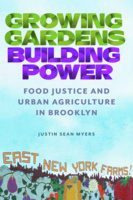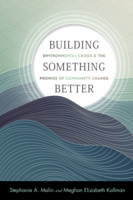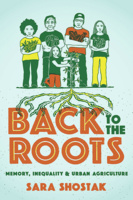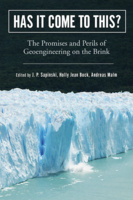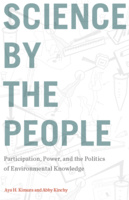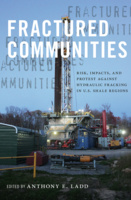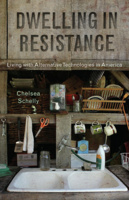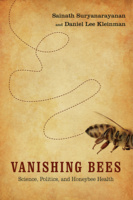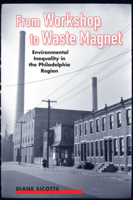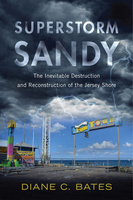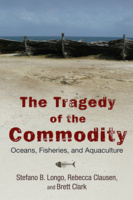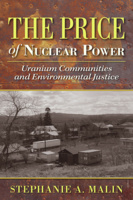Risk and Adaptation in a Cancer Cluster Town
Risk and Adaptation in a Cancer Cluster Town examines the role of emotion and its relationship to community experiences of social belonging and inequality. Using a cancer cluster community in Northwest Ohio as a case study, Laura Hart advances an approach to risk that grapples with the complexities of community belonging in the wake of suspected industrial pollution. Her research points to a fear driven not only by economic anxiety, but also by a fear of losing security within the community—a sort of pride that is not only about status, but connectedness. Hart reveals the importance of this social form of risk—the desire for belonging and the risk of not belonging—ultimately arguing that this is consequential to how people make judgements and respond to issues. Within this context, affected families experience psychosocial and practical conflicts as they adapt to cancer as a way of life. Hart ultimately presents possibilities for the democratization of risk management and underscores the need for transformative approaches to environmental justice.
Growing Gardens, Building Power
Food Justice and Urban Agriculture in Brooklyn
Across the United States marginalized communities are organizing to address social, economic, and environmental inequities through building community food systems rooted in the principles of social justice. But how exactly are communities doing this work, why are residents tackling these issues through food, what are their successes, and what barriers are they encountering? This book dives into the heart of the food justice movement through an exploration of East New York Farms! (ENYF!), one of the oldest food justice organizations in Brooklyn.
Flooded
Development, Democracy, and Brazil’s Belo Monte Dam
Flooded provides insights into the little-known effects of dam building through a close examination of Brazil’s Belo Monte hydroelectric facility, the fourth largest dam in the world. Klein tells the stories of dam-affected communities, such as fishermen and displaced urban residents, as well as their advocates, including activists, social movements, public defenders, and public prosecutors. This ground-level perspective shows how local democracy is at once strengthened and weakened by a rapid influx of government resources. In the midst of today’s climate crisis, Flooded showcases the challenges and opportunities of meeting increasing demands for energy in equitable ways.
Building Something Better
Environmental Crises and the Promise of Community Change
Showing that it is possible to challenge social inequality and environmental degradation by refusing to continue business-as-usual, Building Something Better shares vivid case studies of small groups who are making a big impact by crafting alternatives to neoliberal capitalism. It offers both a call to action and a dose of hope in these troubled times.
Risky Cities
The Physical and Fiscal Nature of Disaster Capitalism
Over half the world’s population lives in urban regions, and increasingly disasters are of great concern to city dwellers, policymakers, and builders. Risky Cities is a critical examination of global urban development, capitalism, and its relationship with environmental hazards.
Residues
Thinking Through Chemical Environments
Residues offers readers a new approach for conceptualizing the environmental impacts of chemicals production, consumption, disposal, and regulation. With detailed stories that span the globe, we introduce “residual materialism” as a way to track the, often invisible, impacts of chemicals through time and space and for explaining their world-making powers.
Electric Mountains
Climate, Power, and Justice in an Energy Transition
Electric Mountains examines opposition to wind energy in an environmentally progressive region. It contextualizes opposition within regional culture and political economy and uses environmental sociology to illuminate wind energy’s contested role in transitioning North America’s electricity grid away from fossil fuels.
Back to the Roots
Memory, Inequality, and Urban Agriculture
Urban agriculture has become a critical domain for explorations of, and challenges to, the long standing and systemic inequalities that shape cities, neighborhoods, and the lives and life chances of their residents. Back to the Roots describes how urban farmers and gardeners reckon with the cultural meanings and material legacies of the past as they seek to create more just and equitable futures.
Toxic and Intoxicating Oil
Discovery, Resistance, and Justice in Aotearoa New Zealand
When oil and gas exploration was expanding across Aotearoa, New Zealanders faced the typically distinct problems of oil spills, hydraulic fracturing, offshore exploration, climate fears, and disputes over unresolved Indigenous claims nearly simultaneously. Collectively, these grievances created the foundation for an organized civil society to construct and then magnify a comprehensive critical oil narrative--in dialogue, practice, and aspiration. Community advocates and socioecological activists mobilized for their health and well-being, for their neighborhoods and beaches, for Planet Earth and Planet Ocean, and for terrestrial and aquatic species and ecosystems. In this allied ethnography, quotes are used extensively to convey the tenor of some of the country’s most passionate and committed people. By analyzing the intersections of a social movement and the political economy of oil, Patricia Widener reveals a nuanced story of oil resistance and promotion at a time when many anti-drilling activists believed themselves to be on the front lines of the industry’s inevitable decline.
Has It Come to This?
The Promises and Perils of Geoengineering on the Brink
Science by the People
Participation, Power, and the Politics of Environmental Knowledge
Studies show that citizen science projects—projects involving nonprofessionals—face dilemmas ranging from austerity to presumed boundaries between science and activism. By unpacking the politics of citizen science, this book aims to help people negotiate a complex political landscape and choose paths moving toward social change and environmental sustainability.
Salmon and Acorns Feed Our People
Colonialism, Nature, and Social Action
Salmon and Acorns Feed Our People: Colonialism, Nature and Social Action draws upon nearly two decades of examples and insight from Karuk experiences on the Klamath River to illustrate how the ecological dynamics of settler-colonialism are essential for theorizing gender, race and social power today.


